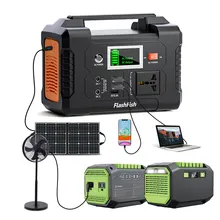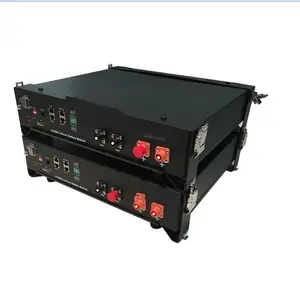What is Lithium Ion Battery 200v Technology
Lithium-ion batteries have emerged as one of the most popular types of rechargeable batteries used in various electronic devices, ranging from smartphones and laptops to electric vehicles and renewable energy storage systems. This technology is favored for its high energy density, low self-discharge, and long lifespan, which makes it particularly suitable for portable applications where weight and space are at a premium. The ability to store large amounts of energy within a relatively small and lightweight form has revolutionized the way we power our modern gadgets and vehicles.
The construction of a lithium-ion battery involves a cathode (positive electrode), an anode (negative electrode), and an electrolyte medium that allows for the flow of ions between the two electrodes during discharging and charging cycles. When the battery is being used to power a device, lithium ions flow from the anode to the cathode, releasing stored energy in the process. During charging, an external electrical power source forces the ions back to the anode, storing energy for future use.
This technology is not only for individual consumers but also for businesses that require efficient energy solutions for their products or operations. The benefits of lithium-ion batteries extend beyond mere consumer applications; they are widely used in the medical field, aerospace industry, and many other commercial settings. The versatility and reliability of these batteries make them an essential component in today's fast-paced technological advancements.
Types of Lithium Ion Battery 200V Technology
The market offers a variety of Lithium Ion Battery 200V types to meet different requirements and applications:
-
Cylindrical Lithium Ion Batteries: These are the most common type found in many consumer electronics due to their simple design and cost-effectiveness. They are often used in power tools, e-bikes, and as backup energy sources.
-
Prismatic Lithium Ion Batteries: With their rectangular or square shape, these batteries are well-suited for devices that require a flat form factor. They can be found in laptops and electric vehicles where space efficiency is crucial.
-
Flexible Lithium Ion Batteries: These are designed for applications where the battery may need to bend or twist to fit into a particular space. They are lightweight and can be manufactured in custom shapes.
-
High Power Lithium Ion Batteries: Engineered for devices that demand high burst or continuous power, such as electric vehicles or certain medical equipment, these batteries have a higher discharge rate to supply energy quickly.
-
Deep Cycle Lithium Ion Batteries: These are optimized for applications where the battery will be deeply discharged and recharged repeatedly, like in solar installations or electric wheelchairs.
Each type has its own set of characteristics and common use cases, ranging from lightweight consumer electronics to heavy-duty industrial equipment.
How to choose Lithium Ion Battery 200v Technology
Choosing the right Lithium Ion Battery 200V Technology requires careful consideration of the intended application and operational environment. Businesses looking to procure these batteries must evaluate several factors:
-
Capacity and Voltage: The capacity of a battery is its ability to store energy, typically measured in milliampere-hours (mAh). Voltage determines how much energy can be transferred at once, with higher voltage batteries offering more power but potentially requiring more complex charging solutions.
-
Size and Weight: Depending on the application, size and weight can be critical factors. Portable electronics demand smaller and lighter batteries without compromising on performance. Larger capacities often mean heavier batteries but can provide more energy which might be necessary for specific use cases.
-
Chemistry and Materials: The choice of battery chemistry like lithium cobalt oxide or lithium iron phosphate will affect performance characteristics such as energy density and cycle life. It's essential to match the chemistry with the application's requirements.
-
Temperature Sensitivity: Some lithium-ion batteries may operate within a limited temperature range. It's crucial to consider whether the battery will be used in environments with extreme temperatures and choose a type that can handle such conditions without significant degradation.
-
Cycle Life: Businesses should understand how many charge cycles a battery can undergo before its capacity starts degrading. This is particularly important in applications where the battery will be discharged and recharged frequently.
-
Form Factor: The physical size and shape of the battery must align with the product design. Some applications may require custom-shaped batteries that fit specific spaces.
About Lithium Ion Battery 200v Technology on Alibaba.com
Alibaba.com is an expansive marketplace that connects businesses with a vast selection of lithium-ion batteries tailored to meet diverse needs. Whether you're looking for high-capacity batteries for an electric vehicle fleet or compact ones for portable electronics, Alibaba.com offers an array of choices from suppliers around the world. The platform's emphasis on facilitating global trade makes it easier for businesses to find the products they need while benefiting from competitive wholesale pricing.
What sets Alibaba.com apart is its commitment to ensuring secure transactions through services like Trade Assurance. This dedication creates a reliable purchasing experience where businesses can shop with confidence knowing their payments are protected until delivery is completed. Additionally, Alibaba.com's user-friendly interface allows buyers to communicate with suppliers in their local language and manage orders with ease on mobile devices—streamlining the entire procurement process.
By choosing Alibaba.com for sourcing lithium-ion batteries with 200V technology, businesses can take advantage of tailored trade solutions that cater to their unique requirements. This level of customization coupled with Alibaba's extensive network of suppliers makes it an indispensable resource for any enterprise seeking high-quality lithium-ion batteries on a global scale.
Common FAQs for Lithium Ion Battery 200v Technology
What is 200V technology in lithium-ion batteries?
200V Technology refers to lithium-ion batteries that have a nominal voltage of 200V. These batteries are commonly used in high-voltage applications where long life and consistent power delivery are important.
How does the choice of 200V technology affect battery performance?
The technology used in a battery determines its performance characteristics, such as energy density, cycle life, and power output. Choosing the right technology ensures the battery meets the specific requirements of the application, whether it's for electric vehicles, energy storage systems, or portable electronics.
Can 200V technology be used in all types of lithium-ion batteries?
200V Technology offers many benefits, such as higher energy densities and increased power output, making it suitable for a wide range of applications. However, it may not be compatible with all existing battery systems due to its higher voltage.
Is there a significant difference in cycle life between batteries with different lithium-ion technologies?
Yes, cycle life can vary significantly among different lithium-ion technologies. For example, NMC batteries typically offer a longer cycle life compared to LiFePO4 batteries, making them more suitable for products that require consistent performance over many charging cycles.
How important is the safety of lithium-ion batteries when used in products?
Safety is a critical concern when working with lithium-ion batteries. It is crucial to consider potential hazards associated with battery operation and implement safety features such as protective casings and built-in circuitry to prevent overcharging or short-circuiting.
Are there environmental considerations when using lithium-ion batteries?
Lithium-ion batteries are generally more environmentally friendly than other types of batteries, especially if they are manufactured using sustainable practices. It's important to dispose of them properly at the end of their life cycle.
How does temperature affect lithium-ion battery performance?
Extreme temperatures can negatively affect lithium-ion battery performance. Operating or charging batteries in temperature ranges outside of their designed thermal limits can reduce their capacity, efficiency, and overall life span.
Can 200V technology be integrated into both portable and stationary battery systems?
Yes, 200V technology can be integrated into both portable and stationary battery systems. Its suitability will depend on the specific requirements of the application.
What role does the BMS (Battery Management System) play in lithium-ion battery packs?
The BMS is crucial for ensuring the safe operation and longevity of lithium-ion battery packs. It manages the battery's state of charge and health, preventing issues like overcharging or deep discharging.
How do I choose the right capacity and voltage for my application's lithium-ion battery?
Consider the energy requirements of your application and choose a battery pack that offers the right balance of capacity and voltage. Higher capacity is typically better for applications that demand more energy storage and longer run times.
Is it possible to customize a lithium-ion battery pack with 200V technology?
Many suppliers offer customization options for lithium-ion battery packs, including different capacities, voltages, and protective features tailored to the application's requirements.
What is the typical lifespan of a lithium-ion battery in an electric vehicle?
The lifespan of a lithium-ion battery in an electric vehicle can vary but is generally rated for 1,000 to 1,500 full charge cycles. Factors that influence lifespan include usage patterns, depth of discharge, and temperature management.
Can I use a custom-designed lithium-ion battery pack for my product?
Custom-designed lithium-ion battery packs can be developed based on specific requirements such as dimensions, energy capacity, shape, and performance attributes. These solutions are often tailored to fit unique product designs.


































 浙公网安备 33010002000092号
浙公网安备 33010002000092号 浙B2-20120091-4
浙B2-20120091-4